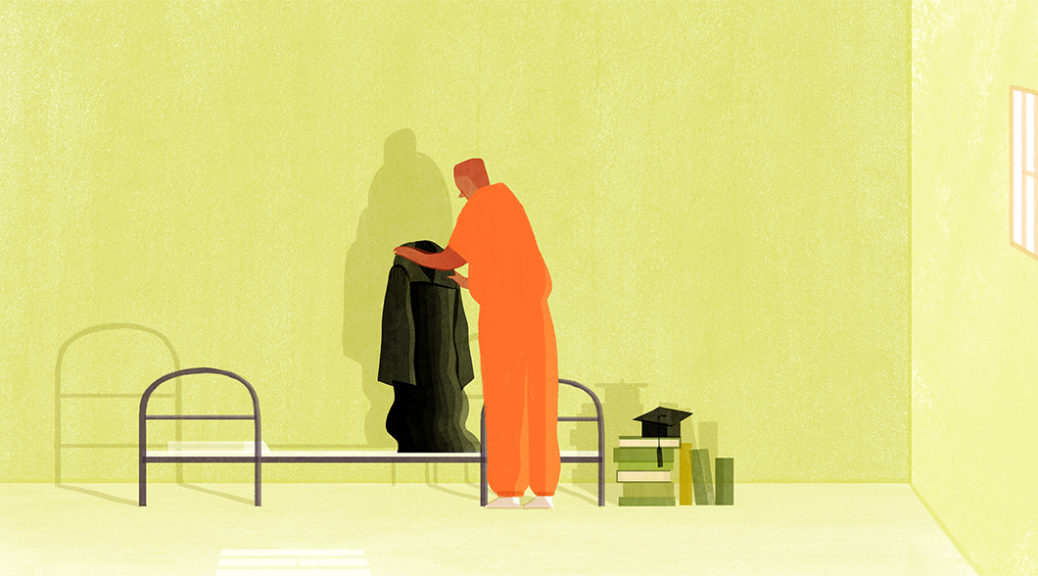
One fresh, sunny morning this spring, a dozen ex-convicts gathered around a table in a back room down a quiet side street of London. Considering the company, the scene was sedate. Someone with a manslaughter conviction stubbed out a cigarette. Onetime drug dealers snacked on croissants. A man with tattoos covering his substantial forearms shuffled reading material on a table. Someone who once served a prison sentence for embezzlement put a kettle on and offered the others tea.
No police officer would worry about this crowd: It was an academic congregation of so-called convict criminologists.
Over the past few decades, some ex-convicts have turned to academia, aiming to put their experience “inside” to good use. They use their knowledge of the criminal justice system to select research questions and design studies. They use their history to gain prisoners’ trust. And they work to counteract what they see as a strong bias in academic criminology toward the perspectives of authorities in the criminal justice system.
Read the rest of this feature in SAPIENS: [html] [pdf].
Pacific Standard also republished the feature: [html] [pdf].

In a waist-high trench alongside Spain’s national Highway 1, a dozen volunteers wearing rubber gloves brush tan clay from crumbling human bones. Their knees rest on foam cushions, and a white tent shades them from the summer sun. It’s July 2011—a full 75 summers after Spain erupted in the Civil War that put the bones of 59 civilians in the ground here.
A few steps away from the trench, volunteers hold microphones up to the murmuring mouths of elders from the town of Gumiel de Izán, in the north-central region of Castilla y León. The elders, who harbor memories of summary executions at the site, may well be the younger siblings, neighbors, and children of those in the grave. But at the moment of exhumation, nobody knows for sure. Instead, the volunteers document and collect the physical remains, coaxing out and recording imperfect memories that were suppressed during four decades of dictatorship.
Such sites are scattered throughout Spain, from the Canary Islands to La Mancha to the Balearic Islands. Recent estimates suggest that some 2,000 mass graves may hold the remains of up to 150,000 victims of hasty wartime executions. Continue reading Unburying the Spanish Civil War →
Journalist covering global development by way of science and technology.

